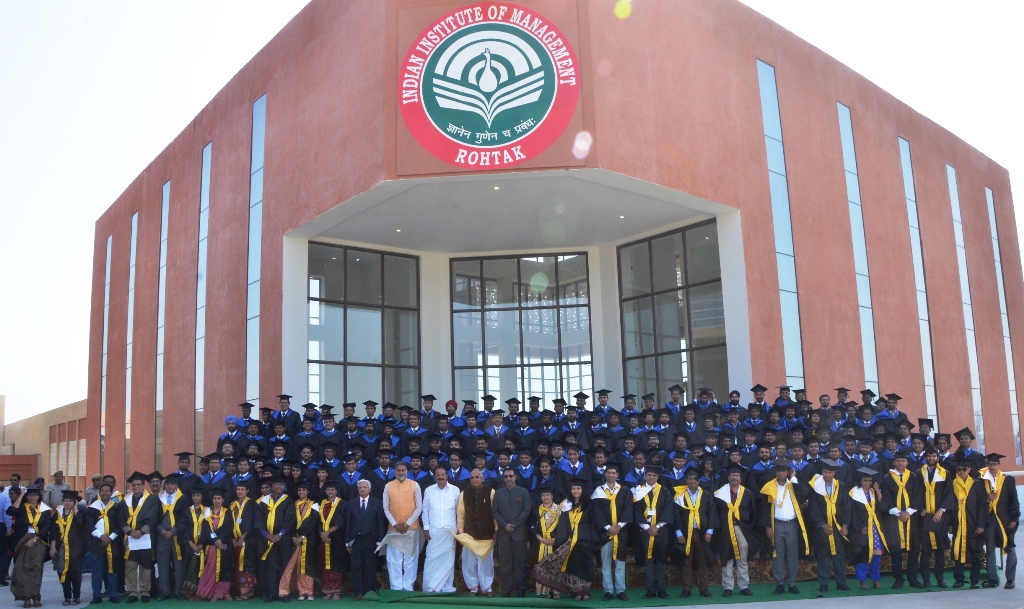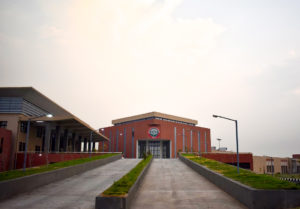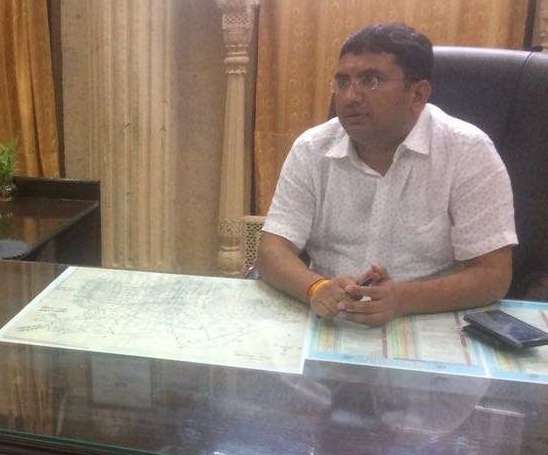Railway Engineering is a multi-faceted, yet specialized discipline dealing with the design, construction, production and operation of all types of railway systems, including the high-end options that bring immense savings in time and energy. Dr Ajam C Shaikh, Principal In-charge, MAEER’s MIT College of Railway Engineering and Research, Barshi, Solapur, for Elets News Network (ENN).

India has a long legacy of value-based education. It has evolved over time from the holistic Vedic Gurukuls, dating back to around 7,000 BC to the modern age computer-based e-learning education. The Indian education ethos was ascribed by Pt. Jawaharlal Nehru, first prime minister and a visionary, in the following words, “A university stands for humanism, for tolerance, for reason, for the adventure of ideas and for the search for truth. It stands for onward march of human race towards even higher objectives. If the universities discharge their duties adequately, then it works well for the nation and the people”.
Apart from inherent complexity, the intertwined nature of education and culture has influenced each other to an extent where one’s individuality melts away and becomes part of the unity. But, in spite of having such a glorious past and one of the largest networks of higher education institutions in the world, in the modern era of market-based, research-driven education system, none of our education institutions are ranked among the top 200. Being a developing nation and moving to become a developed nation, India ought to achieve a decorous position in the field of education, on the global platform. Though, so much has been done till now to meet the goals through various propitious efforts by the government as well as by private players, we have miles to go in cementing the position of our institutions of higher education in the world ranking.
Deloitte, the leading consultancy & audit firm in the world, appropriately described the education sector of India as the “sunrise sector for investments”. India has seen a boom in the education sector in recent years as a result of the government’s growing urban and rural initiatives for increasing the gross enrolment ratio, emergence of private universities with world class infrastructure, and government’s campaigns such as Make in India and Startup India. Although these developments are appealing to the eyes of educationists and economists, realities such as an average of 35% seats remaining vacant in technical and non-technical colleges, lower gross enrolment ratio (GER), unemployed youth causing a burden on the country’s economy and declining credibility of education, are areas of concern.
Scrupulous investigation reveals that the undiversified approach of the current institutions of higher education is the root cause of the problem. The colonial mindset that still prevails, has made Indians to believe that the conventional branches and courses being taught are the only mode by which employment can be gained. The unenterprising approach of many colleges also aggravated the issues to a large extent. The monotonous education system not only failed to associate itself with the growing demand for skilled personnel in various fields; but also did not create interest for learning in the budding minds. The growing void between industry and academia is enormous, which needs to be addressed soon. Government’s initiatives such as Skill India, Make in India and DDU Grameen Kaushalya Yojana have fostered the identification of different skill sets in order to bridge the gap between technical and non-technical resources. It could be achieved by encouraging youth to be equipped with a variety of skills.
Just like education, infrastructure is another factor upon which the real progress and development of a nation depends, since it serves as a catalyst for economic growth. The transportation sector can’t remain untouched in a growing economy where connectivity, even with small towns and villages, either by road, rail or other means, is the objective. This creates enormous demand for manpower capable of dealing with the new challenges. Among the various segments of the transportation sector, railways play a pivotal role in stimulating and ameliorating the country’s economic growth. The world is changing fast and rail transportation is no exception.
It has become an essential vehicle for economic diversification and proved to be a true catalyst for cultural assimilation. With the government focusing on bringing the remote areas on the railway map of India and on phenomenal upgradation such as dedicated freight corridors and bullet trains, there is a rising demand for trained engineering professionals who can cater to this segment. Keeping in mind this projected infrastructure growth in the Indian economy and the need for a specialized workforce of trained and customized engineers, capable of dealing with the railway sector and allied manufacturing sectors, there is a dire necessity of having institutions fully devoted to the discipline of Railway Engineering. This will provide well qualified and competent manpower to take up the challenges pertaining to track renewal, maintenance, traffic management and signaling, and structural analysis, coupled with efficient and effective management of the railway system in totality.
More skills are needed by rail industry professionals today than ever before, which warrants higher level and continuous development of skills and qualifications. It encompasses study of a wide range of engineering disciplines including civil, mechanical, electrical, electronics & telecommunications, computer, industrial and production. It covers many other sub-disciplines of engineering and management such as advanced strength of materials, intelligent transport systems, sustainable rail technologies, nano-materials applications, intelligent transport systems, project finance, supply chain management and operations management. It is absolutely essential to have an institute/university, which will focus on creating a quality learning habitat through processes driven by innovative ideas in pedagogy and projects across all these domains.
There is pressing need to have a specialized group of railway engineers capable of dealing with the prototypical issues associated with railways. With passing time, Railway Systems Engineering is going to emerge as a vibrant field of engineering with great demand for competent, qualified and specialized Railway Engineering graduates, postgraduates and researchers. Many countries such as the United States, United Kingdom, China, Japan and Russia are way ahead in establishing universities devoted to railway engineering. Ironically, India is lagging behind to initiate demand-driven programs in railways. The present government’s steps in developing skill and entrepreneurship among Indian youth, makes Railway Engineering a promising career in a booming ecosystem of first generation entrepreneurs in the country.
With these conditions taken into account, efforts have been initiated to offer a program in Railway Engineering, which would serve the diverse railway sector with state-of-the-art information technology and complex systems. MAEER’s MIT College of Railway Engineering and Research (MITCORER) in Barshi in Solapur district, fulfils this need with add-on Railway Engineering courses, along with conventional engineering degrees. Similarly, Sir Padampat Singhania University has an undergraduate program in Rail Transportation Engineering, while Shri Vaishnav Institute of Technology and Science runs an undergraduate course in railway engineering.
Apart from degree courses, several certificate and diploma courses are being conducted by institutions such as Vishswakarma University, Pune; Institution of Permanent Way Engineers, New Delhi, and Institute of Metro and Rail Technology, New Delhi. In line with these efforts, Government of India has established National Rail and Transport Institute (NRTI) as India’s first ever railway university in Vadodara in Gujarat. This deemed to be university under the de novo category would create a resource pool of the best in class professionals for the railway and transportation sector. NRTI will offer multi-disciplinary programs by designing demand-driven curriculum by aligning with industry priorities. Currently, NRTI offers B.Sc. in Transport Technology and BBA in Transport Management. The establishment of the university is seen as a big boost for Indian Railways.
The enormous demand of skilled man power does not limit the opportunities to just degree or diploma courses in railway engineering; but also brings into picture skill courses of short duration in areas such as total quality management of railway stations and sidings, ballast-less track technology, railway track lay-out and construction, high speed railway track technology, design of high speed locomotives system, rail vibrations and control, structural analysis of railway tracks, construction claims and settlement, environmental engineering and pollution control, and benefit and cost analysis of railway transport system.
In a nutshell, the emergence of modernization in rail transport, high-speed railway route between Mumbai and Ahmedabad, and the proposed Hyperloop route between Pune and Mumbai, create a pool of job opportunities, which demand innovation and a research mindset.
A Railway Engineering degree, along with diploma and certificate courses would create competent, qualified and specialized graduates, postgraduates and researchers who would not only be capable of handling various critical tasks related to the overall railway system; but also cater to take up the challenges of global demand. The program should be coupled with efficient and effective management of the railway system in its totality. It would help in cutting down dependency for railway technology on other countries, thereby helping new startups to grow under the “Make in India” initiative of the Central Government. The efforts for skill developing shall play a critical role in furthering developments in this booming ecosystem.

































